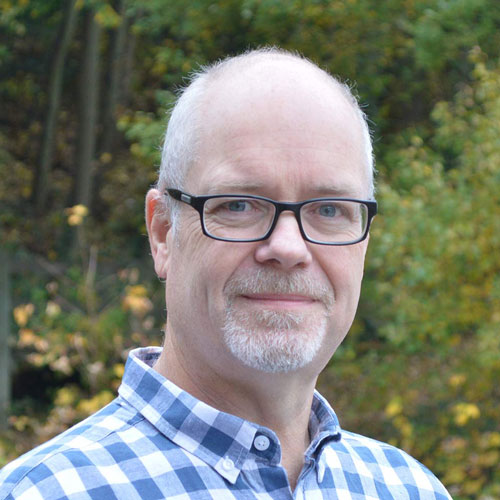
Dr James Reid
HudCRES
Dr James Reid is part of the Life Saving Lullabies project, which developed the idea of educational and instructional lullabies to address issues of maternal and child health in Zambia. These were co-created as a ‘zero-cost’ intervention strategy that is adaptable, sustainable and scalable.
Music, Health and Motherhood
Since the 'Ed Space post earlier this year, the Lifesaving Lullabies project has gained a lot of attention. Recently, Dr Reid was invited to participate in a Music and Science Café organised by the Spanish organisation Grandes Oyentes as part of a series of conversations on the International Day of Action for Women's Health, May 28th 2020. The conversations were designed as monographs on the impact of music and creative engagement on mothers' health, highlighting leading international research exploring what music offers in the prevention of potential illnesses or symptoms.
Grandes Oyentes is a Spanish society devoted to music education, culture, social action and research into music. They especially focus on very early childhood, working towards achieving qualitative musical opportunities for babies, children and families in Spain.
Singing as a sustainable zero-cost intervention
In the interview, Dr Reid outlines the background to the work in Zambia and the need for a sustainable intervention that does not rely on outside aid and considers the cultural context of peoples’ everyday lives. Some key questions considered by the research team included:
“How do you work from people’s experiences, how do you understand their culture, how do you understand their social networks and how do you empower them to come up with ideas about what might work?” [approx. 10 minutes into the recording]
In workshops, researchers discovered that singing was a common experience, singing is what the people do everyday and that is how they started to think about the song and a lullaby.
The songs were used to welcome women visiting the clinic to build trust, convey information about what happened at the clinic on which days, to dispel certain myths and misconceptions about, for example, swelling of hands and headaches.
Dr Reid argues the approach is context specific and a foundation from which to build trust that can reach many women, and perhaps more women than a system that is based only in a clinical setting.
“Part of the work is about interrupting the normal clinical process in the sense that you move away from the clinic. Singing happens in the clinic also but it moves out of the clinic into the local community. And the songs are being done by local women. They are from within that community, they are not outsiders who visit the community and leave” [approx. 21.50 into the recording]
On Thursday, May 28th, on the occasion of the International Day of Action for Women's Health, and just a few weeks after the WHO has made a special call for the use of arts within health systems, Grandes Oyentes will hold a Music and Science Café in which its founder, María Magdalena Sánchez Moreno, will talk with four international scientists and practitioners that will answer these questions. They will bring us closer to their research studies and cutting-edge strategies for social innovation through music, with great impact capacity for health and well-being of pregnant women, recent mothers and their babies.
Interview in Spanish and English (with subtitles)
With the changing circumstances brought on by coronavirus, songs are now being created that inform about the importance of protective measures, such as social distancing.
This work has also been included in an important report on music making and children’s well-being by WolfBrown and the Bernard Van Leer Foundation. See page 22 for more information.
The significance of the work in developing a frugal and sustainable approach utilising song was also recognised when Dr Reid was invited by the Weill Music Institute / Carnegie Hall to present his work to an international audience in a webinar focused on the potential of lullabies in promoting maternal and child well-being. He is currently in discussion with staff at Carnegie Hall about the possibility of a project dealing with maternal and child well-being post Covid-19.
Find out more
Dr James Reid and the historian Professor Barry Doyle at the University of Huddersfield are co-investigators on the Life Saving Lullabies project led by design expert Professor David Swann, once a colleague at Huddersfield and now based at Sheffield Hallam University.
St John, Zambia is the key partner in the project. St John offer support to the nurses and midwifes in clinical settings with the support of the Ministry of Health.
Story by: Kathrine Jensen, HudCRES

